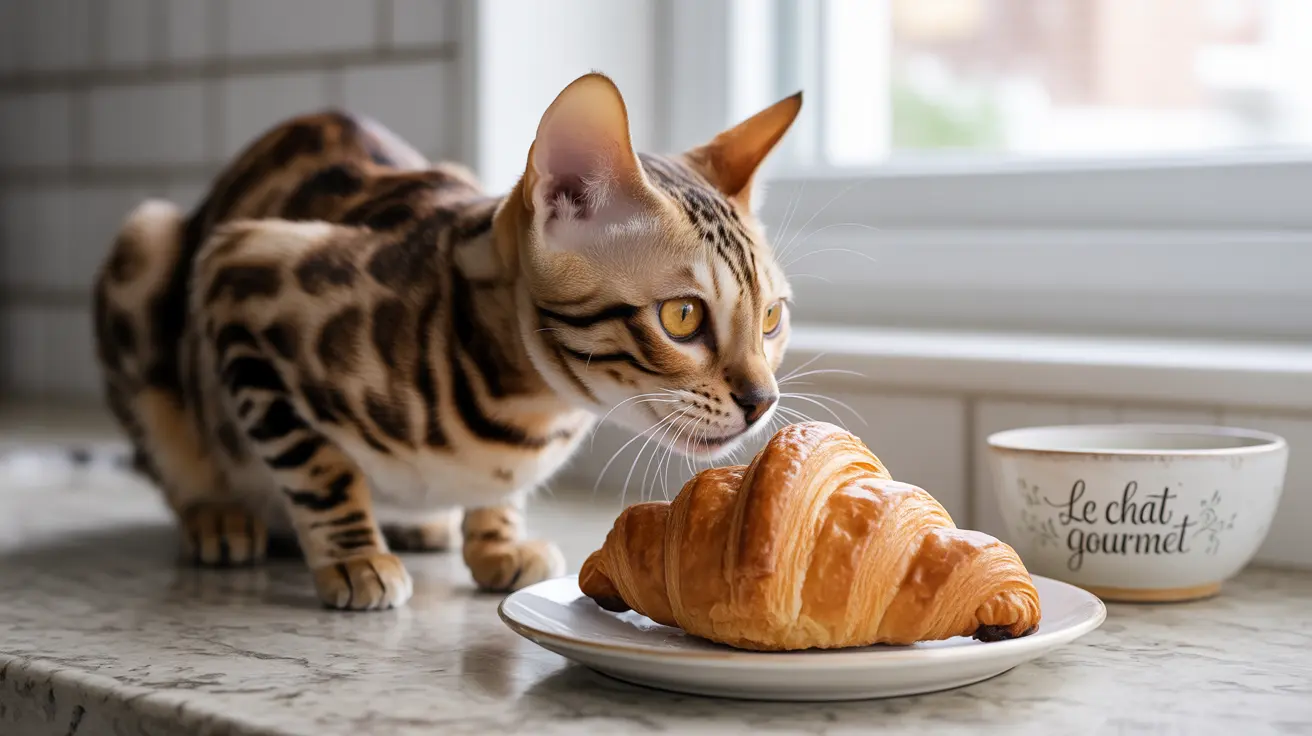As a cat owner, you may have wondered whether sharing your buttery breakfast croissant with your feline friend is safe. While the aroma of freshly baked croissants might attract your cat's attention, veterinary experts strongly advise against feeding these pastries to cats, even in small amounts.
Understanding why croissants aren't suitable for cats requires looking at both feline nutrition needs and the potential health risks these beloved pastries pose to our furry companions. Let's explore the scientific reasons behind this dietary guidance and what you should know to keep your cat healthy.
Why Croissants Are Unsuitable for Cats
Cats are obligate carnivores, meaning their bodies are designed to process and utilize nutrients primarily from animal-based proteins. Croissants, being primarily composed of refined flour, butter, and other ingredients, offer no nutritional value to cats and can actually be harmful to their health.
The Problematic Ingredients
Several components of croissants make them particularly unsuitable for feline consumption:
- Butter and fats: Can lead to pancreatitis and obesity
- Refined flour: Provides empty calories and unnecessary carbohydrates
- Yeast: May cause digestive upset
- Salt: Can contribute to sodium toxicity
- Dairy products: Most cats are lactose intolerant
Health Risks Associated with Cats Eating Croissants
Immediate Health Concerns
When cats consume croissants, they may experience several short-term issues:
- Digestive upset and discomfort
- Vomiting
- Diarrhea
- Lethargy
- Dehydration
Long-term Health Implications
Regular consumption of croissants can lead to more serious health problems:
- Obesity and weight management issues
- Diabetes
- Chronic digestive problems
- Pancreatic inflammation
- Nutritional deficiencies
Safe Alternatives to Croissants for Cats
Instead of sharing croissants with your cat, consider these healthy alternatives:
- Commercial cat treats formulated for feline nutrition
- Small pieces of cooked, plain chicken or turkey
- Freeze-dried meat treats
- Cat-specific dental treats
- Small amounts of cooked fish (occasional treat)
Prevention and Safety Tips
To protect your cat from accessing croissants and other unsuitable human foods:
- Store pastries in sealed containers
- Keep kitchen counters clear when not in use
- Never leave baked goods unattended
- Train your cat to avoid begging for human food
- Maintain consistent feeding schedules with appropriate cat food
Frequently Asked Questions
Can cats eat croissants safely, and what are the risks?
No, cats cannot safely eat croissants. While not toxic, croissants contain ingredients that can cause digestive issues, contribute to obesity, and potentially lead to more serious health problems like pancreatitis.
Why are croissants bad for cats if they're not toxic?
Croissants are bad for cats because they're high in fats and carbohydrates, which cats' digestive systems aren't designed to process. They also contain ingredients like dairy that can cause digestive upset, and they offer no nutritional value for cats.
What are healthier alternatives to croissants for my cat?
Healthy alternatives include commercial cat treats, small pieces of cooked lean meat (without seasonings), and specially formulated feline dental treats. Always choose treats specifically designed for cats' nutritional needs.
How can I prevent my cat from eating human pastries like croissants?
Store pastries in sealed containers or cabinets, keep counters clear of food, and never leave baked goods unattended. Train your cat not to beg for human food and maintain regular feeding schedules with appropriate cat food.
What should I do if my cat accidentally eats a croissant?
Monitor your cat for signs of digestive upset or unusual behavior. If your cat consumed a large amount or shows any concerning symptoms like vomiting or lethargy, contact your veterinarian for guidance.
Conclusion
While croissants might be a delightful treat for humans, they have no place in your cat's diet. The best way to show love to your feline friend is by providing species-appropriate food and treats that support their health and well-being. If you're ever uncertain about what foods are safe for your cat, consult with your veterinarian for professional guidance.






